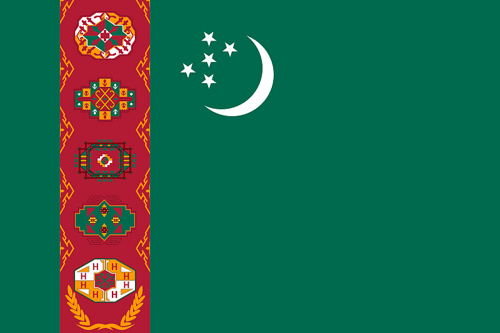Turkmenistan – on the way to Rio+20
Preparations for the UN Conference on Sustainable Development (UNCSD), scheduled for June 2012 in Rio de Janeiro, Brazil, is currently under way in the world.
 Rio + 20 will seek new political commitments of countries to ensure sustainable development, assess progress and remaining gaps in implementation of decisions of summits on sustainable development and to develop solutions for new and emerging issues.
Rio + 20 will seek new political commitments of countries to ensure sustainable development, assess progress and remaining gaps in implementation of decisions of summits on sustainable development and to develop solutions for new and emerging issues.
One of the two issues to be discussed at Rio +20 will be the topic of “green economy in the context of sustainable development and poverty eradication”, as climate change has long ceased to be just an environmental issue. Climate change issues are now directly linked to other issues of sustainable development, poverty eradication, water and food security.
Up to date, Turkmenistan has already done a certain amount of work that will allow the country to articulate its priorities and interests at the upcoming conference.
In the area of reducing greenhouse gas emissions, Turkmenistan conducted last year an assessment of investment and financial flows that should be made in the electricity sector in order to maximize its efficiency. This assessment was made as part of the global UNDP project “Capacity building for decision-makers on climate change.” Turkmenistan also made an inventory of emissions and sinks of greenhouse gases over the period of 1994-2004, assessed the vulnerability and adaptive capacity of the socio-economic sectors, and explored the country’s capacity to take action to prevent global climate change.
Similar assessment was also made in the water sector of Turkmenistan in order to understand what resources need to be invested and what issues need to be addressed to use water resources more efficiently, given that climate is constantly affecting water quality and quantity. In this regard, Turkmenistan has recently became the first country in the region of the CIS and Europe to receive a grant from the Adaptation Fund amounting to nearly USD 3 million to improve water resources management, taking into account climatic conditions.
The logical conclusion of this ground work was a decision to develop a National Strategy on Climate Change for Turkmenistan. This process was launched at the third inter-ministerial dialogue, held recently in Ashgabat. The key elements of this strategy, designed until 2030 under the motto“Economy in harmony with climate” were also developed with the support of the UN Development Program. This strategy will reflect not only environmental but also social and economic aspects of development, which ultimately aims to make the economy of Turkmenistan as “green” as possible.
“Preparation of a National Strategy on Climate Change in Turkmenistan, and many other countries is a step in the right direction. These steps should be followed by concrete actions to reduce greenhouse gas emissions and adapting to climate change by bringing new technologies,” said Gabriela Fisherova, Climate Change Policy Advisor from the UNDP Regional Centre in Bratislava, at the third inter-ministerial dialogue.
Following the development of the National Strategy, preparation of detailed action plans on reduction of greenhouse gas emissions and strengthening the capacity of national economy to respond to climate change will start. Almost all ministries and departments of the country should be involved in this work. UNDP will take a very active part in supporting the stakeholders in strategic planning and developing a plan of action to reduce greenhouse gas emissions and adaptation to climate change, taking into account best international practices.
The National Strategy on Climate Change can become a voice of the country at Rio+20 in Brazil. Turkmenistan will be able to present concrete results and achievements in reducing greenhouse gas emissions and adaptation to climate change, including issues of biodiversity and management of land and water resources, as well as measures and decisions that the country has taken and will take in the future in order to ensure “green” development.
Article originally published at http://www.untuk.org
